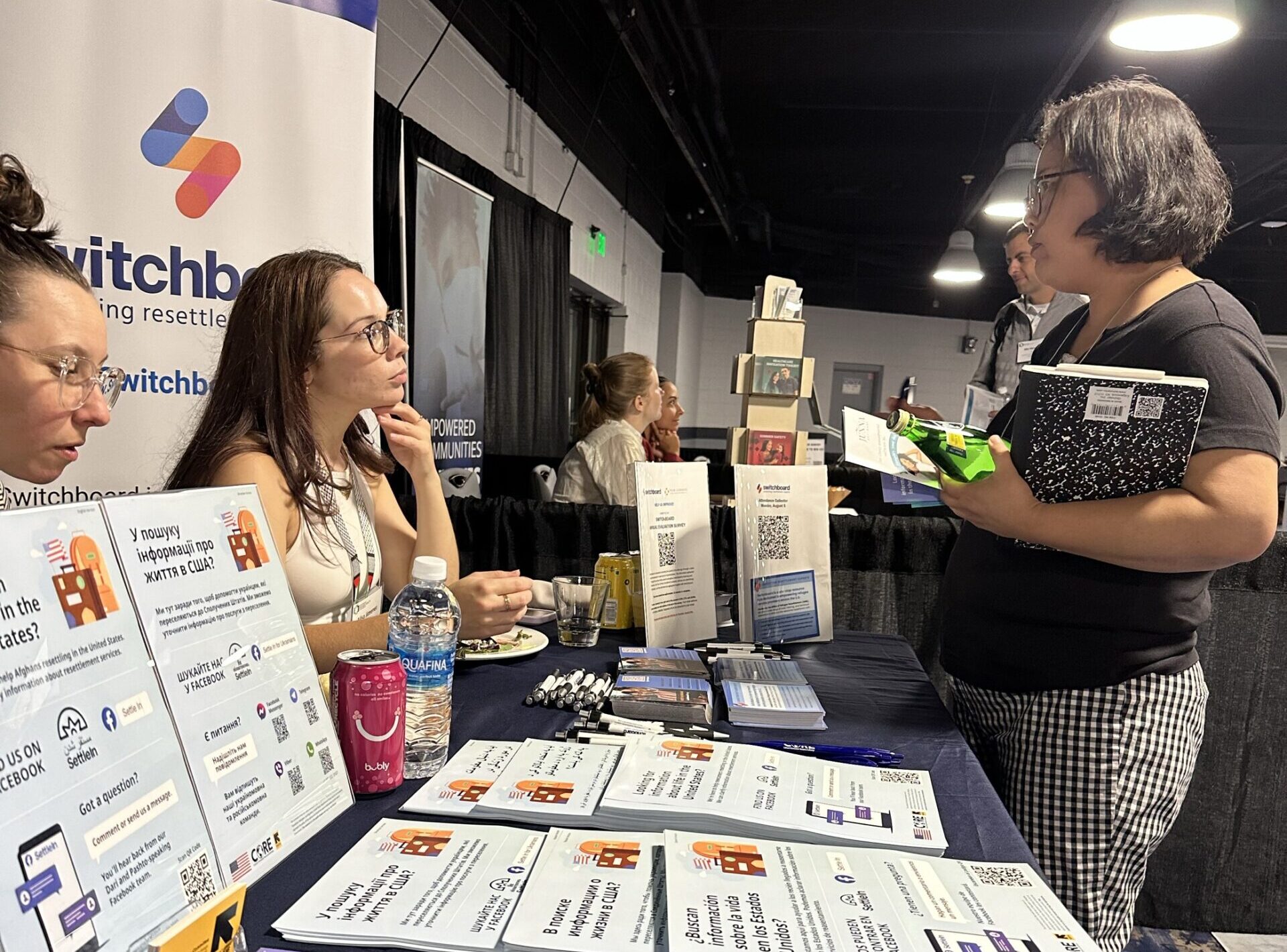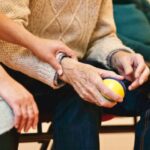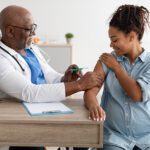Switchboard was an integral partner in the 2024 North American Refugee Health Conference (NARHC), which took place this August in Minneapolis, Minnesota, often called the “birthplace” of refugee health. The NARHC highlighted the importance of including voices with lived refugee experience; recognized refugee health as a global continuum; and emphasized cross-sector collaboration and international best practice sharing. It also brought attention to climate change’s impact on refugee health and displacement, while showcasing the continued development of evidence-based practices and innovative approaches to resettlement. This blog post will recap some highlights from the conference and share a few key takeaways.
What is the NARHC?
The NARHC is held annually with the goal of educating attendees on the latest and best practices in refugee and immigrant health. Delivered by the Society of Refugee Healthcare Providers, this year’s conference took place August 5-7 in Minneapolis, the city credited as the birthplace of refugee health in resettlement. Attendees included clinicians, resettlement practitioners, academics, policy makers, students, and community members from across North America and abroad. and community members from across North America and abroad.
A record-breaking 1,083 participants joined this year’s NARHC, traveling from 45 U.S. states, seven Canadian provinces, and 19 other countries including Australia, Egypt, Israel, Jordan, Kenya, Malaysia, Nepal, Thailand, Ukraine, and Zimbabwe. These attendees collectively serve a reported 1.4 million-plus refugees and other forcibly displaced individuals. The conference featured three days of keynote speakers and dozens of presentations selected from one of the largest pools of submitted abstracts in the conference’s history.
For the first time, Switchboard and the Society of Refugee Healthcare Providers offered two pre-conference courses and scholarships to 72 providers from 22 U.S. states. Most scholarship recipients had personal experience with displacement and were first-time attendees. Nearly 100 participants joined the “Introduction to Refugee Health” and “Afghan Women’s Health” courses, featuring interactive discussions with clinicians and community leaders.
Five Key Takeaways
These insights reflect some of the most impactful discussions, innovative ideas, and emerging trends that shaped NARHC 2024:
1. Voices in the Room: The conference opened with Dr. Anisa Ibrahim and Rep. Ilhan Omar’s keynote, “The Light Beyond: Reflections on Migration, Hardship, and Hope.” Dr. Ibrahim, quoting Rep. Ayanna Pressley, declared that “those closest to the pain need to be the closest to the power.” Through Rep. Omar’s storytelling about her grandfather, participants were reminded what is at stake when we don’t have the right voices in the room and the critical role of proper medical interpretation. Invited speakers Oballa Oballa and Faith Akovi Cooper drove this point home with their inspiring stories, detailing how they use their personal experiences to advocate for refugees and vulnerable populations across the U.S. and beyond.
2. Accessibility: Accessibility has many layers and tangible impacts on health outcomes. Kao Kalia Yang, the award-winning Hmong-American author, surfaced this point through heartfelt readings from her children’s book Caged and her memoir Where Rivers Part: A Story of My Mother’s Life.
Learn More: Visit Kao Kalia Yang’s website to see a complete list of publications and work.
3. The Power of Data: Almost one million people from around the world enter the U.S. every day. In the “Immigrant, Refugee, and Migrant Health Branch Update” session, David Fitter and Drew Posey from the CDC’s Division of Global Migration Health presented on using data to improve processing and communication for better public health outcomes.
Fitter and Posey highlighted the Refugee Immunization Information Exchange (RIISE) Project, which transfers refugee vaccination data across 40 states and ensures records are readily available for local providers. This project helps children meet local vaccination requirements for school entry, streamlines records between health information sessions, and supports better overall immunization coverage for the community.
Learn More: The CDC plays a vital role in immigrant and refugee health; learn more about the Division of Global Migration Health on the CDC’s website.
4. Historical Context and Collaboration: Despite the often demoralizing experience of confronting persistent systemic health care issues, Pat Walker and Bill Stauffer’s keynote celebrated the significant progress resettlement stakeholders have made in refugee health. They traced the field’s evolution from its early days—when it lacked standards, guidelines, and community inclusion—to its current, more developed state, offering a reminder of how far the discipline has come.
Walker and Stauffer showcased the ongoing development of evidence-based practices and increased cross-sector collaboration, including joint programming by ORR and the Bureau of Population, Refugees and Migration; workshops on resettlement agency partnerships with medical care providers; and presentations by experts with lived experience. The session demonstrated how attendees are leveraging multisectoral partnerships to improve health and advocate for change.
Learn More: Download the Switchboard guide Service and Health Care Provider Collaboration: Promoting Clients’ Health Through Improved Coordination.
5. Migration Health as a Continuum: While most NARHC attendees work in the U.S., it is crucial to understand refugee health as a global ecosystem. Several sessions highlighted this insight, from International Organization for Migration (IOM) experts sharing overseas and pre-departure health data, to panels discussing international and domestic vaccine initiatives, to the Minnesota and Colorado Centers of Excellence comparing community health navigator models. The Office of Refugee Resettlement (ORR) and Bureau of Population, Refugees, and Migration (PRM) collaborated on a panel workshop entitled “Continuum of Care: Two Federal Programs that Support Refugee Health in the U.S.” to highlight this issue. Presentations on Canadian and Australian health programs further emphasized international knowledge exchange. This global approach facilitates best practice sharing and interorganizational learning across the refugee health continuum.
Recognizing refugee health as part of a broader continuum is especially crucial as the impacts of climate change escalate. In the final NARHC keynote, Gaurab Basu of the Harvard T.H. Chan School of Public Health alerted the audience to the continuing detrimental impacts of climate change on health. Climate-fueled crises will only worsen, and the UNHCR recognizes climate change as a root cause of displacement. Basu urged the audience to take action, including to help people understand the connection between forced displacement, climate change, and health.
Learn More: If you want to take a deeper dive into climate change and health, visit the Center for Climate, Health, and the Global Environment.
Session Spotlights
In addition to keynote speakers and plenaries, the conference included more than 130 concurrent workshops and oral abstracts, and a poster hall with more than 160 posters. Below is a sample of some of those sessions:
Refugee Health Best Practices for Collaboration Between Resettlement Agencies and Medical Care presented by Dr. Robert P. Marlin, Sidney L. Liang, and Caroline Rowe
Lessons Learned: Building Trust and Engaging Karenni Refugee Communities in Research presented by Htay Meh, Dr. Ana Sucaldito, Dr. Scott Rhodes, and Dr. Stephanie Daniel
Career Consultation and Mentorship in Refugee Mental Health presented by Dr. Mary Bunn, Dr. Nancy Murakami, and Dr. Karin Wachter
Combatting Intergenerational Trauma: School-Based Mental Health Groups with Immigrant Children presented by Dr. Adaobi Iheduru
Multilingual Vaccine Education Material in Five Languages Using Human-Centered Design presented by Amina Ibrahim, Dr. Elizabeth Dawson-Hahn, Nadege Mudenge, Dr. Mohammad Iqbal Wali Khan, Adrien Matadi, Tammy Melnik, Patty Stubber, Dr. Kristine Knuti Rodrigues, Betsy Ruckard, Erin Mann, Syreeta Wilkins, and Dr. Katherine Yun
Engaging Refugee Partners in Research on Refugee Health: The SRHP Refugee Review Board presented by Dr. Sarah Brewer, Ola Alani, Matila Rial, Dr. Mahri Hader, Dr. Anisa Ibrahim, Al-Yusef Molieh, Farduus Ahmed, Noor Almusahwi, and Dr. Sarah Kimball
Join Next Year’s Conference June 27-29, 2025
During this year’s conference, the Society of Refugee Healthcare Providers announced not only the 2025 location—in Halifax—but also an exciting new inclusive name for the event: the International Refugee and Migration Health Conference. Registration opens in October 2024, as does the call for abstracts.









